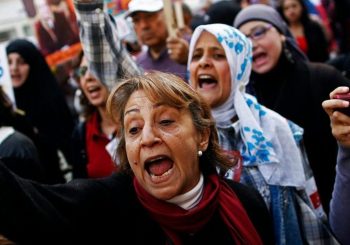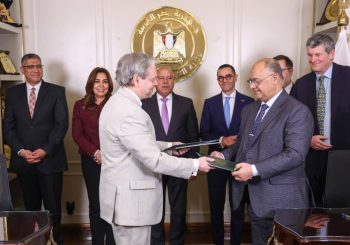In recent decades, relations between Egypt and Iran have been marked by tension. While the two nations are part of the Middle East and share the Islamic faith, they follow different religious branches, with political and strategic interests that often diverge.
Nonetheless, the two nations found common ground in the Arab-Israeli conflict, and the year-long war in Gaza has prompted them to consider restoring diplomatic ties.
The Iranian President, Ebrahim Raisi, and Egyptian President, Abdel Fattah Al-Sisi met for the first time in November 2023 on the sidelines of the Arab-Islamic summit hosted by Saudi Arabia in Riyadh. Since then, the two countries have been in constant contact, discussing “the situation in the Gaza Strip, and fears of escalation of regional tension,” as stated in official communications from both parties.
This reconnection comes after nearly half a century of Egypt and Iran not seeing eye to eye—a conflict that began with the 1979 Iranian Revolution.
The Complex Relations of Egypt and Iran
During the 1970s, Iran had a close relationship with Egypt under the presidency of Anwar El-Sadat, and Shah Mohammad Reza Pahlavi’s reign in Iran.
However, the 1979 Iranian Revolution, in which masses rose against Shah’s regime, known for its close ties with the United States and recognition of Israel, marked a sharp decline in relations.
The revolution reshaped the Imperial State of Iran into the contemporary Islamic Republic, with Ayatollah Ruhollah Khomeini, a prominent cleric who led one of the rebel factions, ascending to power and replacing the Shah. This upheaval not only altered regional dynamics but also severely impacted Cairo-Tehran ties.
Following Egypt’s signing of the Camp David Accords with Israel, Khomeini cut diplomatic ties with Cairo in protest. The rift between the two nations deepened further when El-Sadat granted asylum to the overthrown Shah of Iran, who died and was buried in Egypt in 1980.
Conflicts between Egypt and Iran remained high throughout the 1980s, primarily driven by Egypt’s support for Iraq during the prolonged Iran-Iraq War. Relations further deteriorated when Iran provocatively named a street in its capital after Khalid al-Islambouli, the Egyptian army lieutenant involved in the assassination of El-Sadat in 1981.
In 2003, former Egyptian President Hosni Mubarak and Iranian President Mohammad Khatami held a pivotal meeting, the first direct encounter between the leaders of Egypt and Iran in decades. This historic meeting signaled a cautious step toward thawing the long-standing diplomatic freeze between the two countries.
Nine years later, the late Egyptian President Mohamed Morsi visited Tehran in August 2012 to attend a summit of the Non-Aligned Movement. The trip marked the first time an Egyptian leader had visited Iran since the 1979 Iranian Revolution, symbolizing a potential shift in the relations between the two nations.
In February 2013, then-Iranian President Mahmoud Ahmadinejad made a reciprocal visit to Cairo to attend an Organization of Islamic Cooperation summit, signaling yet another significant step toward mending relations between the two nations.
Restoring Diplomatic Ties Amid a Humanitarian Crisis
The two countries have had many meetings throughout the first half of 2024 to explore strengthening bilateral relations and discuss the War in Gaza.
Egypt’s Foreign Minister, Badr Abdelatty has been working closely with Iran’s Acting Foreign Minister, Ali Bagheri Kani, to advocate for all parties to practice restraint to prevent an escalation into a full-blown regional conflict.
After Israel assassinated Hamas’ political bureau chief, Ismail Haniyeh, in Tehran on 31 July, it carried out an airstrike in Beirut on 27 September, killing Hezbollah military chief Fouad Shukur. In response, Iran, which is a supporter of Hezbollah, vowed retaliation.
The rising tension between Iran and Israel has prompted Egypt to step up its diplomatic efforts on the international stage to prevent the situation from worsening.
In a phone call on 7 October, Abdelatty and Iran’s Foreign Minister, Abbas Araghchi, highlighted the urgency of de-escalating tensions in the Middle East, warning that further hostilities could push the region toward a catastrophic war, jeopardizing its security and stability.
As this narrative unfolds, Egypt and Iran’s relations remain fraught with challenges, yet they are strengthened by efforts aimed at reconciliation amid regional turmoil.







Comments (2)
Taking a cease-fire that even if it lasts only one day but is done for Allah can soften our hearts and bring us that much closer to peace. A time for all of us to rejoice in the prospects of our future and follow the right path for Allah. In The name of Allah for everything. The Peace and Blessings of Allah be with Prophet Mohammad and all The Prophets and Messengers and their Family and Companions.
As a symbolic gesture of solidarity unity under The Almighty and acceptance of each other and acceptance of the truth.